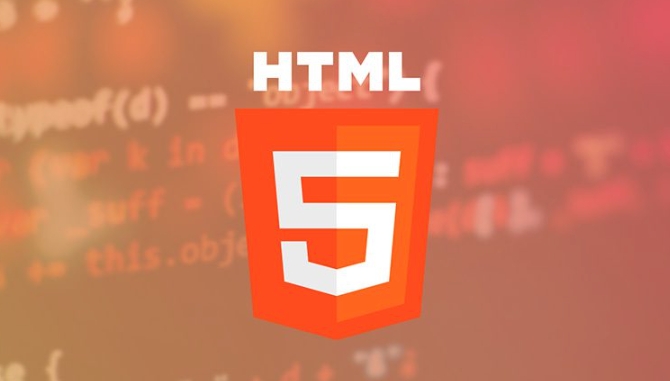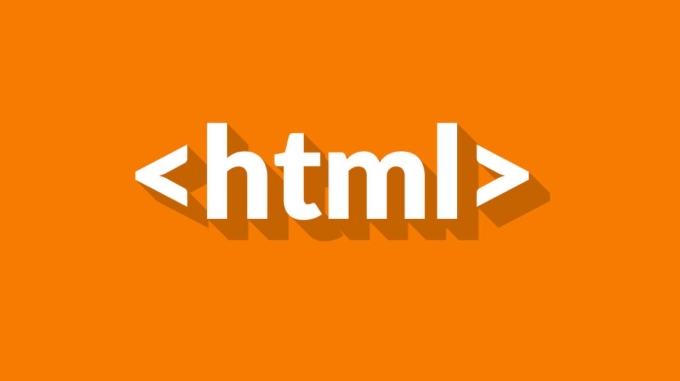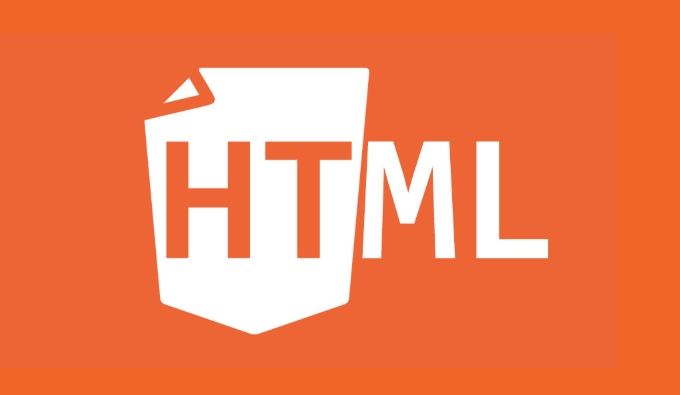How to add comments in html code for readability?
Jul 11, 2025 am 02:39 AMThe reasons for adding comments to HTML include improving code readability, facilitating post-maintenance, and helping multiple people quickly understand structural logic when collaborating. 1. Comments can be used to mark different blocks of the page, such as header and footer; 2. Explain the function or purpose of a certain piece of code; 3. Temporarily hide the code for debugging; 4. Remind others to pay attention to special processing. The correct way to add comments is to use <!-- Start comment--> and <!-- End comment--> to appear in pairs, especially for large code structures. Positions suitable for commenting include main structural divisions, special functional modules, and commented out codes. Commenting tips include keeping concise, uniform format, avoiding sensitive information, and appropriate indentation. Good annotation habits can significantly improve development efficiency and teamwork effectiveness.

Adding comments to HTML code is mainly to improve the readability of the code and post-maintenance efficiency. Especially when multiple people collaborate or project complexity is high, clear annotations can help you and others quickly understand structural logic.

Why comment in HTML?
Many people only focus on whether the function is implemented when writing HTML, but ignore whether the code itself is "easy to read". In fact, reasonable comments have several practical uses:

- Tag different blocks of the page (such as header, footer, sidebar)
- Explain the function or purpose of a certain piece of code
- Temporarily hide some code for debugging
- Remind subsequent developers to pay attention to certain special treatments
If you don’t have comments, you may not be able to understand the code you have over time.
How to add HTML comments correctly?
The comment syntax of HTML is very simple, start with <!-- , end with --> , and the middle is the explanatory text you want to write. For example:

<!-- This is the head of the website--> <header> <h1>My website</h1> </header>
In this way, others will know what this code does at a glance. For example:
<!-- Start of the main content area--> <main> <p>This is the main content</p> </main> <!-- End of main content area-->
This pair-appearing comment is very practical in large pieces of code, and the structure scope can be seen at a glance.
Which places are suitable for commenting?
Not every line needs to be commented, as it will interfere with reading. It is recommended to add comments for the following situations:
- The main structure division of the page (such as navigation bar, sidebar, footer, etc.)
- Special functional modules (such as advertising space, dynamically inserted content)
- The code that has been commented out temporarily (it is best to explain the reason)
For example:
<!-- Navigation Bar-Used Responsive Design-->
<nav class="responsive-nav">
<ul>
<li><a href="#home">Home</a></li>
<li><a href="#about">About</a></li>
</ul>
</nav>Such annotations not only mark the location, but also illustrate technical characteristics.
Some tips for using comments
- Keep it simple : Don't need to write too long sentences, just simply explain the purpose.
- Unified format : For example, all blocks end with
<!-- xxx 結束-->for easy search. - Avoid sensitive information : Do not write sensitive content such as passwords, paths, etc. in comments.
- Appropriate indentation : keeps consistent with the code structure and looks cleaner.
If you keep other people's code regularly, these small details are really useful.
Basically that's it. HTML comments are not complicated, but they are indeed a good habit. Especially in teamwork or long-term projects, spending a few minutes writing clear notes can save a lot of communication costs in the future.
The above is the detailed content of How to add comments in html code for readability?. For more information, please follow other related articles on the PHP Chinese website!

Hot AI Tools

Undress AI Tool
Undress images for free

Undresser.AI Undress
AI-powered app for creating realistic nude photos

AI Clothes Remover
Online AI tool for removing clothes from photos.

Clothoff.io
AI clothes remover

Video Face Swap
Swap faces in any video effortlessly with our completely free AI face swap tool!

Hot Article

Hot Tools

Notepad++7.3.1
Easy-to-use and free code editor

SublimeText3 Chinese version
Chinese version, very easy to use

Zend Studio 13.0.1
Powerful PHP integrated development environment

Dreamweaver CS6
Visual web development tools

SublimeText3 Mac version
God-level code editing software (SublimeText3)

Hot Topics
 How do I use the element to represent the footer of a document or section?
Jun 25, 2025 am 12:57 AM
How do I use the element to represent the footer of a document or section?
Jun 25, 2025 am 12:57 AM
It is a semantic tag used in HTML5 to define the bottom of the page or content block, usually including copyright information, contact information or navigation links; it can be placed at the bottom of the page or nested in, etc. tags as the end of the block; when using it, you should pay attention to avoid repeated abuse and irrelevant content.
 How do I use the tabindex attribute to control the tab order of elements?
Jun 24, 2025 am 12:56 AM
How do I use the tabindex attribute to control the tab order of elements?
Jun 24, 2025 am 12:56 AM
ThetabindexattributecontrolshowelementsreceivefocusviatheTabkey,withthreemainvalues:tabindex="0"addsanelementtothenaturaltaborder,tabindex="-1"allowsprogrammaticfocusonly,andtabindex="n"(positivenumber)setsacustomtabbing
 What is the declaration, and what does it do?
Jun 24, 2025 am 12:57 AM
What is the declaration, and what does it do?
Jun 24, 2025 am 12:57 AM
Adeclarationisaformalstatementthatsomethingistrue,official,orrequired,usedtoclearlydefineorannounceanintent,fact,orrule.Itplaysakeyroleinprogrammingbydefiningvariablesandfunctions,inlegalcontextsbyreportingfactsunderoath,andindailylifebymakingintenti
 What is the loading='lazy' one of the html attributes and how does it improve page performance?
Jul 01, 2025 am 01:33 AM
What is the loading='lazy' one of the html attributes and how does it improve page performance?
Jul 01, 2025 am 01:33 AM
loading="lazy" is an HTML attribute for and which enables the browser's native lazy loading function to improve page performance. 1. It delays loading non-first-screen resources, reduces initial loading time, saves bandwidth and server requests; 2. It is suitable for large amounts of pictures or embedded content in long pages; 3. It is not suitable for first-screen images, small icons, or lazy loading using JavaScript; 4. It is necessary to cooperate with optimization measures such as setting sizes and compressing files to avoid layout offsets and ensure compatibility. When using it, you should test the scrolling experience and weigh the user experience.
 How do I use the element to represent a section of navigation links?
Jun 24, 2025 am 12:55 AM
How do I use the element to represent a section of navigation links?
Jun 24, 2025 am 12:55 AM
The key to using elements to represent navigation link areas is semantics and clear structure, usually in conjunction with organizational links. 1. The basic structure is to put the parallel links in and wrap them inside, which is friendly to auxiliary tools and is conducive to style control and SEO; 2. Commonly used in or, for placing main navigation or footer link collections; 3. A page can contain multiple areas, such as main menu, sidebar or footer independent navigation.
 What are best practices for writing valid and well-formed HTML code?
Jul 01, 2025 am 01:32 AM
What are best practices for writing valid and well-formed HTML code?
Jul 01, 2025 am 01:32 AM
When writing legal and neat HTML, you need to pay attention to clear structure, correct semantics and standardized format. 1. Use the correct document type declaration to ensure that the browser parses according to the HTML5 standard; 2. Keep the tag closed and reasonably nested to avoid forgetting closed or wrong nesting elements; 3. Use semantic tags such as, etc. to improve accessibility and SEO; 4. The attribute value is always wrapped in quotes, and single or double quotes are used uniformly. Boolean attributes only need to exist, and the class name should be meaningful and avoid redundant attributes.
 How do I create paragraphs in HTML using the element?
Jun 25, 2025 pm 04:13 PM
How do I create paragraphs in HTML using the element?
Jun 25, 2025 pm 04:13 PM
To create HTML paragraphs, you need to use tags, which are used to organize text content into separate paragraph blocks, improving readability, style control, and accessibility. When used, start with and close, and the paragraphs are line-breaked by default and have spacing; simulated paragraphs cannot be nested or abused. In addition, you can unify or differentiate styles through CSS and improve SEO and accessibility. Correct use helps clear content structure and facilitates search engine analysis.
 What are the essential HTML elements for structuring a webpage?
Jul 03, 2025 am 02:34 AM
What are the essential HTML elements for structuring a webpage?
Jul 03, 2025 am 02:34 AM
The web page structure needs to be supported by core HTML elements. 1. The overall structure of the page is composed of , , which is the root element, which stores meta information and displays the content; 2. The content organization relies on title (-), paragraph () and block tags (such as ,) to improve organizational structure and SEO; 3. Navigation is implemented through and implemented, commonly used organizations are linked and supplemented with aria-current attribute to enhance accessibility; 4. Form interaction involves , , and , to ensure the complete user input and submission functions. Proper use of these elements can improve page clarity, maintenance and search engine optimization.






